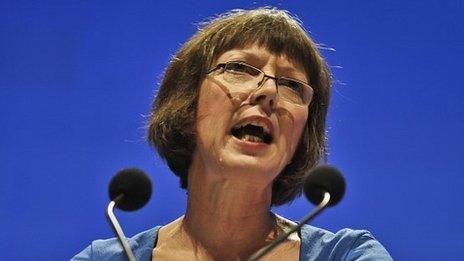Mark Carney predicts real terms wage rises 'next year'
- Published
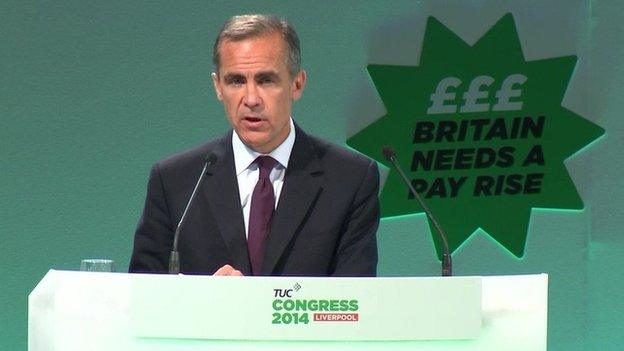
Bank of England governor Mark Carney has told the UK's trades unions that wages should start rising in real terms "around the middle of next year" and "accelerate" afterwards.
Addressing the annual conference of the TUC, he said workers "deserved" more money and added that unemployment should fall to 5.5%.
Mr Carney said that interest rates should start rising next Spring
But he insisted there was "no timetable" for future increases.
Mr Carney is only the third Bank of England governor to address the organisation's annual conference, following Eddie George in 1998 and Mervyn King in 2010.
His speech in Liverpool, external comes as the economy is recovering, with growth of 0.8% in each of the first two quarters of this year.
'Not given up'
The TUC has complained this week that wages are not keeping pace with inflation, leading to a decline in people's living standards. On Monday delegates passed a motion calling for a minimum wage of £10 an hour, more than 50% higher than the rate currently set for workers over the age of 21.
Mr Carney praised the UK's workers, who had not "given up" during the recession, accepting pay cuts or shorter hours. This had helped account for a lower rate of unemployment than seen in other European countries.
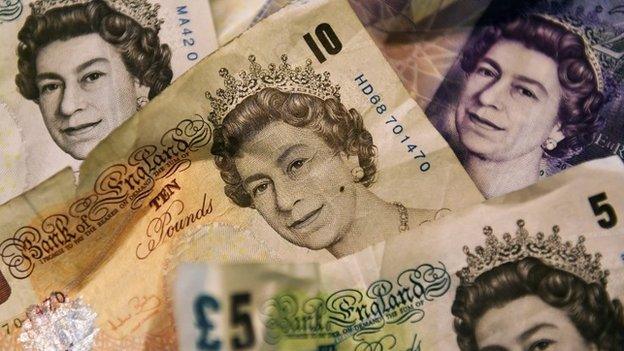
Interest rates are expected to rise next spring
The upturn would mean unemployment falls to 5.5% from the current 6.4% over the next three years, he added.
Mr Carney said: "Employment does much more than provide the means to support workers and their families; it is essential to personal fulfilment and human dignity. Part of that dignity is being paid a living wage."
He added: "There are now over one million more people in work in the UK than at the start of the crisis. Total hours worked are some 4% above their pre-crisis level.
"That exceptional employment performance has come at a cost, however: wage growth has been very weak."
'Sustainable'
Mr Carney said that, adjusted for inflation, pay had fallen by around a tenth since the onset of the financial crisis, adding: "To find such a fall in the past, you would have to look back to the early 1920s."
He said: "But, you rightly ask, when will this start? When will Britain get a pay rise? The expansion of labour supply does not mean permanently weak growth of real incomes.
"As employment approaches its new higher level, wage pressures should increase and capital investment should continue to recover. Productivity growth should pick up bringing the higher, sustainable pay rises that British workers deserve.
"Specifically, the Bank's latest forecast expects real wage growth to resume around the middle of next year and then to accelerate as the unemployment rate continues to fall to around 5.5% over the next three years."
'Momentum'
Mr Carney said pay growth should reach 4% within the same period.
He told delegates: "The recovery has exceeded all expectations. It has momentum."
Economists expect the Bank to begin the process of normalising interest rates - which have been held at an unprecedented low of 0.5% for five years - early next year.
Mr Carney pointed to last month's Bank forecasts which showed that if rates started to rise when markets predict, inflation would be on course to settle close to its 2% target in three years time.
"With many of the conditions for the economy to normalise now met, the point at which interest rates also begin to normalise is getting closer," he said.
"In recent months the judgement about precisely when to raise Bank rate has become more balanced.
"We have no pre-set course, however; the timing will depend on the data.
"Moreover, the precise timing of the first rate rise is less important than our expectation that, when rates do begin to rise, those increases are likely to be gradual and limited. Rates will go up only as far and as fast as is consistent with price stability as part of a durable expansion, with the maximum sustainable level of employment."
But Mr Carney said he did not expect interest rates to rise back to levels seen before the recession.
Last month the Bank of England halved its forecast for average wage growth this year to 1.25%.
- Published9 September 2014

- Published5 September 2014
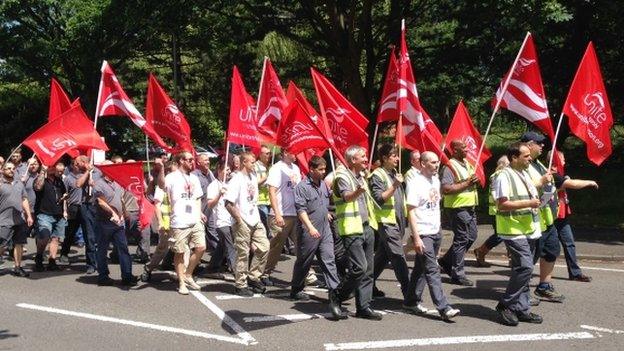
- Published28 August 2014
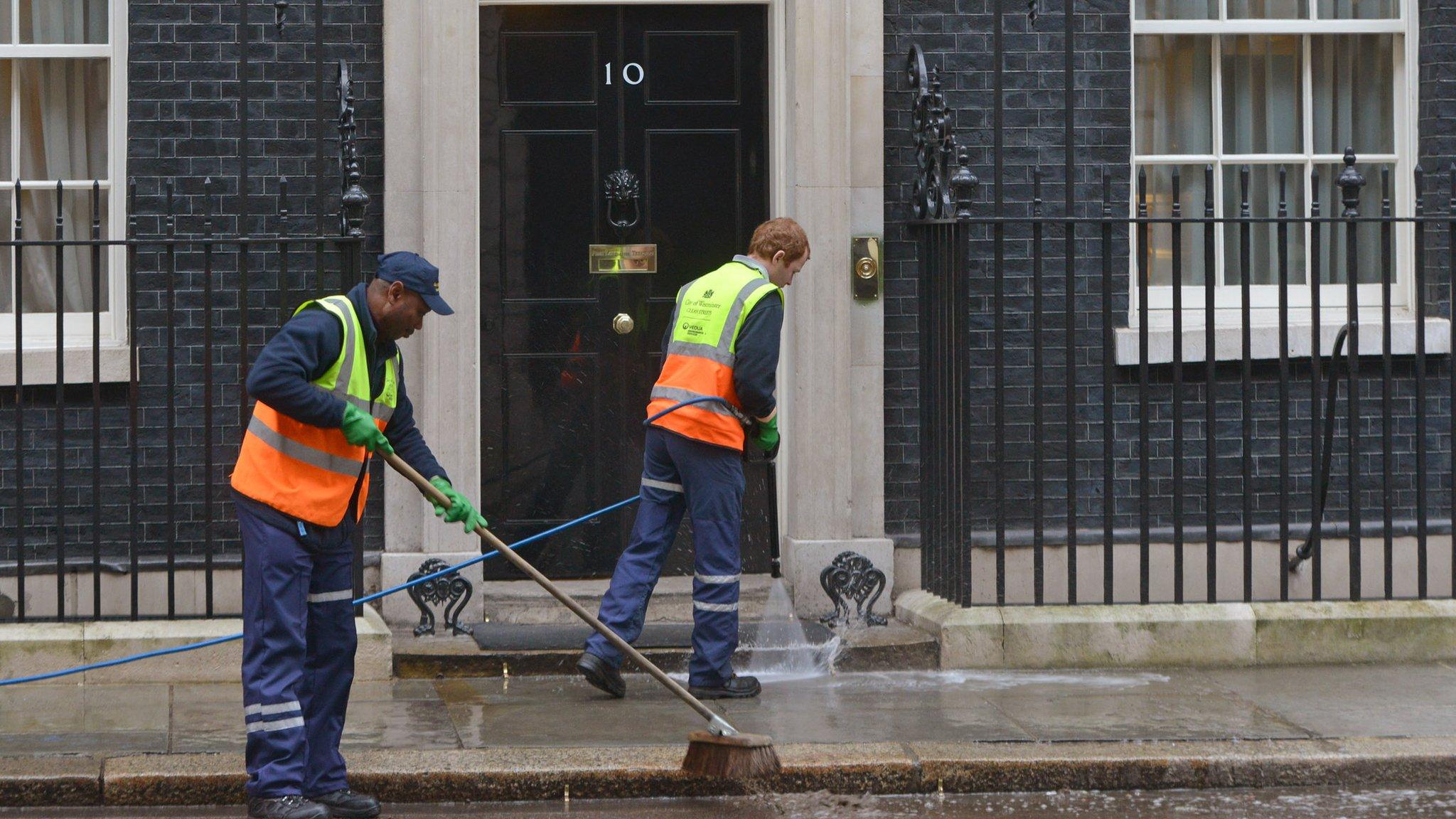
- Published10 July 2014
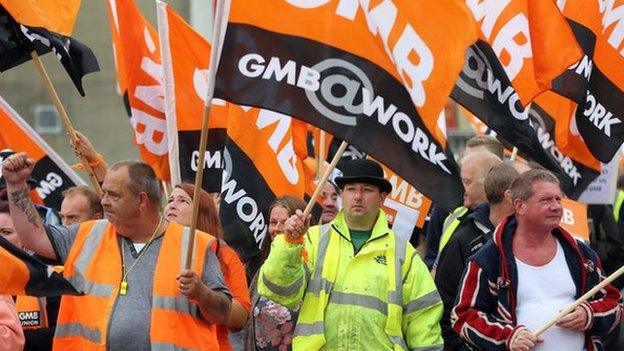
- Published8 September 2014

- Published9 September 2013
